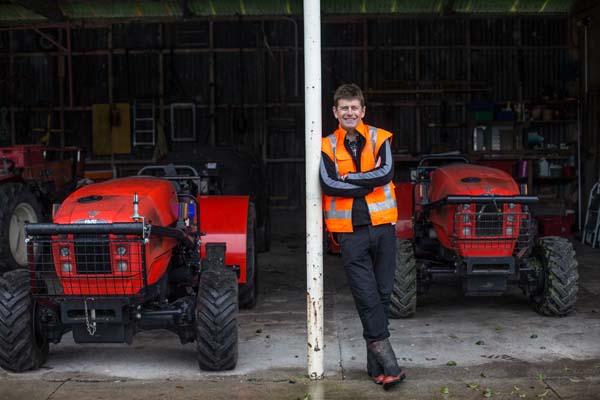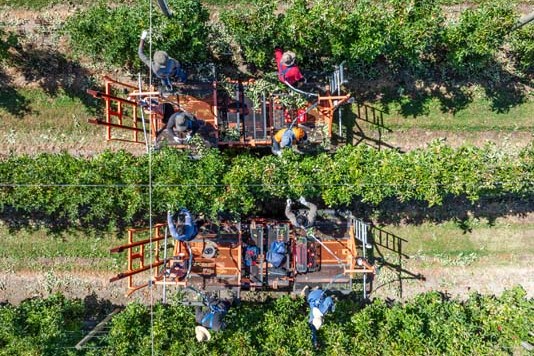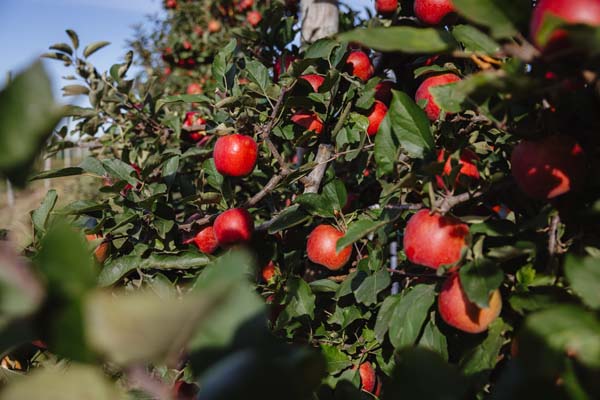A plan with pink hearts
A target of 50/50 sharemilking in five years features in the plans of a young migrant couple, contract milking in Southland. By Anne Lee. Photos by Edwin Mabonga.
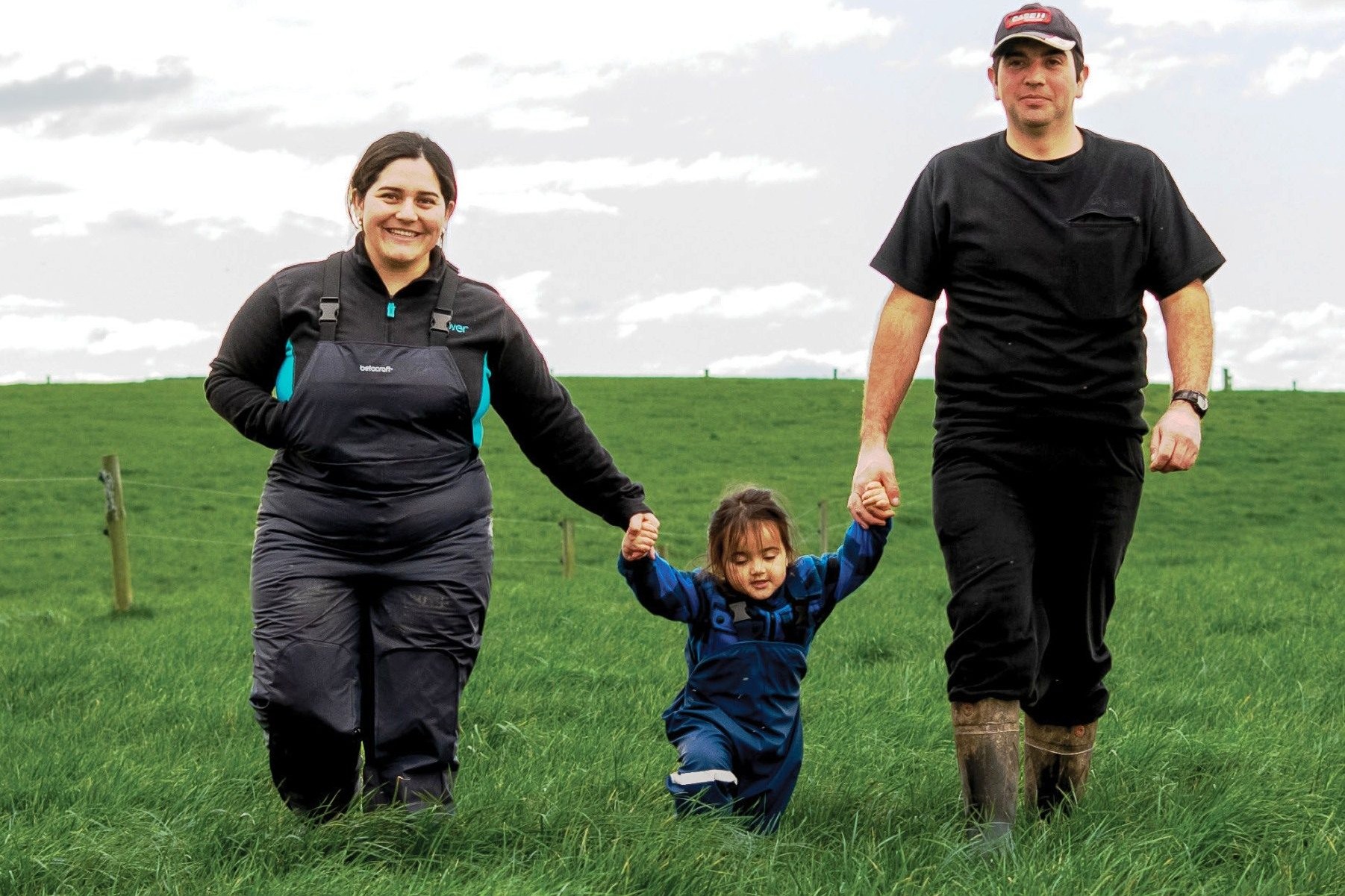
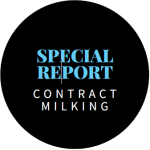 A Chilean dairying couple now based in Southland have shared the handwritten plan they put together in 2017, giving a very personal glimpse into the moment they shifted from living in the now to setting tangible goals for their future.
A Chilean dairying couple now based in Southland have shared the handwritten plan they put together in 2017, giving a very personal glimpse into the moment they shifted from living in the now to setting tangible goals for their future.
Gonzalo Bascur and Nayabet Espinoza’s original page, complete with Nayabet’s hand-drawn pink hearts is their “commitment letter” and lays out what they wanted in their next job as they set themselves on a pathway of progression.
The pair have just started their second season contract milking and took a quick breather in June to reflect on how they’d managed to make the leap from wages to business owners when they spoke at the South Island Dairy Event (SIDE) in Invercargill.
They candidly shared their journey at BusinessSIDE, a workshop series within the conference aimed at those considering joining the dairy sector and new entrants who want to learn more about further opportunities.
Their commitment letter marked a turning point in their careers onfarm – the moment they took the time to think about what exactly they wanted next.
It was specific on the number of cows, the location, the job positions they both wanted as well as the minimum salaries.
Personal goals were included too – keeping the good friends they’d already made and getting out and meeting new people.
Poignantly the two final goals were:
“Stay as the strong couple we are.
“And be happy.”
Gonazalo and Nayabet met while working in Canterbury in 2013.
Nayabet came straight from high school in Los Angeles, Chile, where she’d studied agriculture and Gonzalo had arrived in New Zealand the year before, having worked as a veterinary assistant in his home country.
It was while working on neighbouring, large-scale, Canterbury farms they say they learned how not to be a boss.
They admit they were struggling with language difficulties at work, but the high pressure environment made it all the more difficult and they decided to move on.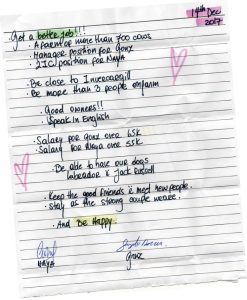
Gonzalo secured a job as a farm assistant at Dipton, Southland, and Nayabet did relief milking around the district until she joined him on the 600-cow farm as a farm assistant when he stepped up to 2IC the following season.
The pair say their farm owner, Alan Maxwell saw their potential and that gave them the confidence to take on PrimaryITO as well as English classes.
Gonzalo says they worked on building their farming skills and their boss was always full of support.
Back then they were still pretty focused on enjoying life in the moment – Queenstown was just up the road, they made friends in the district and lived from pay cheque to pay cheque.
“Then we decided we wanted to go on a trip to Thailand and that made us more organised.
“We had to think about saving money as well as taking care of ourselves so we set up a savings account and went to a personal trainer,” he says.
They worked for the Maxwells for five years and Gonzalo progressed to farm manager and Nayabet 2IC but not long after they returned from their holiday, they felt ready for the next step.
That’s when they put pen to paper, drew up their goals and their commitment letter and started looking.
“The next season we took on the job at Mokotua to manage 700 cows.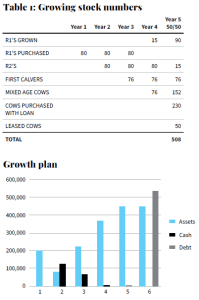
“We quickly realised this farm was exactly what we wanted and we were able to learn a lot about the business level of farming which helped us start thinking about what we wanted to plan for our lives,” Nayabet says.
“It’s then that we started thinking about contract milking and so we started to plan for that.
“We talked to our friends and they helped us understand what being a contract milker would mean and what we could achieve.
“From the beginning we involved the farm owner with our plans for the future.”
They started taking courses to build their financial literacy such as the Dairy Training Business – By The Numbers course which teaches practical techniques to manage cash flow, create financial budgets and improve profitability.
They joined a DairyNZ Bizstart group to build their business management skills and Nayabet completed the Agri-Women’s Development Trust – Understanding Your Farming Business course.
“That course inspired me to pursue a career in accounting and now I’m studying that and working part time at an accountant’s firm in town.”
Beginning a compulsory savings plan was another pivotal moment.
“We went from being spenders to savers,” Gonzalo says.
They set a stretch goal of $90,000 in the first year and were able to put away $50,000 – still no mean feat.
“The farm owners were able to see our great results onfarm and they helped us as we worked up to become contract milkers on their farm.
“So, achieving great results year after year was a key component to getting there because it built the confidence of the farm owners,” Nayabet says.
In 2020 that confidence was reinforced when Gonzalo was placed second in the Dairy Manager of the Year category of the Southland-Otago Dairy Industry Awards.
He also won the Westpac Personal Planning and Financial Management Merit Award and the McIntyre Dick and Partners Employee Engagement Merit Award.
The couple had aimed for contract milking by 2021 but Covid-19 meant processing of their residency visas was delayed and without it they weren’t able to own a business and employ staff.
By the start of the 2022/23 season, though, they were ready to go – residency in hand, $50,000 of hard-earned cash in the bank and a growing feeling of self-assurance when it came to their business skills.
Thirty thousand dollars was earmarked to help pay wages and cover the bills over June, July and August – before milk cheque payments started coming through – and the rest was used to buy the equipment they needed such as motorbikes and vehicles, calf-rearing gear, some fencing equipment and a trailer.
“The contract includes managing the runoff over the winter and we rear the replacements,” Nayabet says.
Their main costs include wages for three permanent staff and a calf rearer, electricity for the farm dairy, chemicals used in the farm dairy, rubberware and fuel.
The farm owner provides the tractor and feedout wagon.
“We did our own research on what contract milking rates were in the industry and talked to others who were already contract milking as well as our accountant.
“Because we’d been working on the farm, we’d developed a relationship with our farm owners and they were happy to share the budget information that gave us a realistic picture of what our costs would be,” Nayabet says.
The farm owners offered them a contract rate and with their research they were able to negotiate with them to settle on a figure both were comfortable with.
While they knew how to run the farm after five years on the same property, their first season contract milking was still a very steep learning curve.
That was despite all the courses, Nayabet says.
“It was hard, really hard and I think you are probably never fully ready – managing the finances, communicating with the bank, managing an overdraft, doing the GST, paying the wages, using the accounting and payroll software.
“We had a close relationship with our accountant – quarterly coaching sessions to help us stay on track were really helpful,” she says.
At times, during the season the bank account looked very healthy, but it was important to ensure money was put aside to pay tax and keep cash flow on target to cover the months when earnings dropped with milk production.
While it felt like a bit of a whirlwind for a while, they got through the season well, hitting their production target of 320,000kg milksolids (MS) using just 253kg drymatter (DM)/cow of bought-in supplement across the 694 peak cows milked.
Their contract is year by year and in December last year they renegotiated for this season.
“Because we had our own actual figures by then we were able to adjust some of our budgeted costs – which were rising, like wages, and renegotiate our rate for this current season we’re in now.
“The payout drop is not good for anyone, but because we have locked in our rate we’re less-affected than our farm owners.
“It’s something we’re aware of and our farm team is working hard to make everything as efficient as possible onfarm, achieving a higher milk production target with the same amount of inputs or less,” she says.
The payout drops aren’t good for those coming up the progression ladder either, making the next steps such as 50/50 look less attractive.
While Nayabet and Gonzalo know how volatile payout can be they still have their sights on 50/50 sharemilking in five years.
True to form, they have a plan and written goals with savings going into building stock numbers and the aim to have enough equity to go sharemilking. (See table one for the plan for building stock numbers.)
The aim over the medium term is to keep doing a great job, hit their targets and stay focused on the future.
Despite the challenges in the sector they’re still convinced the dairy industry offers the best pathway to the lifestyle they’re after – the pink hearts remain.



